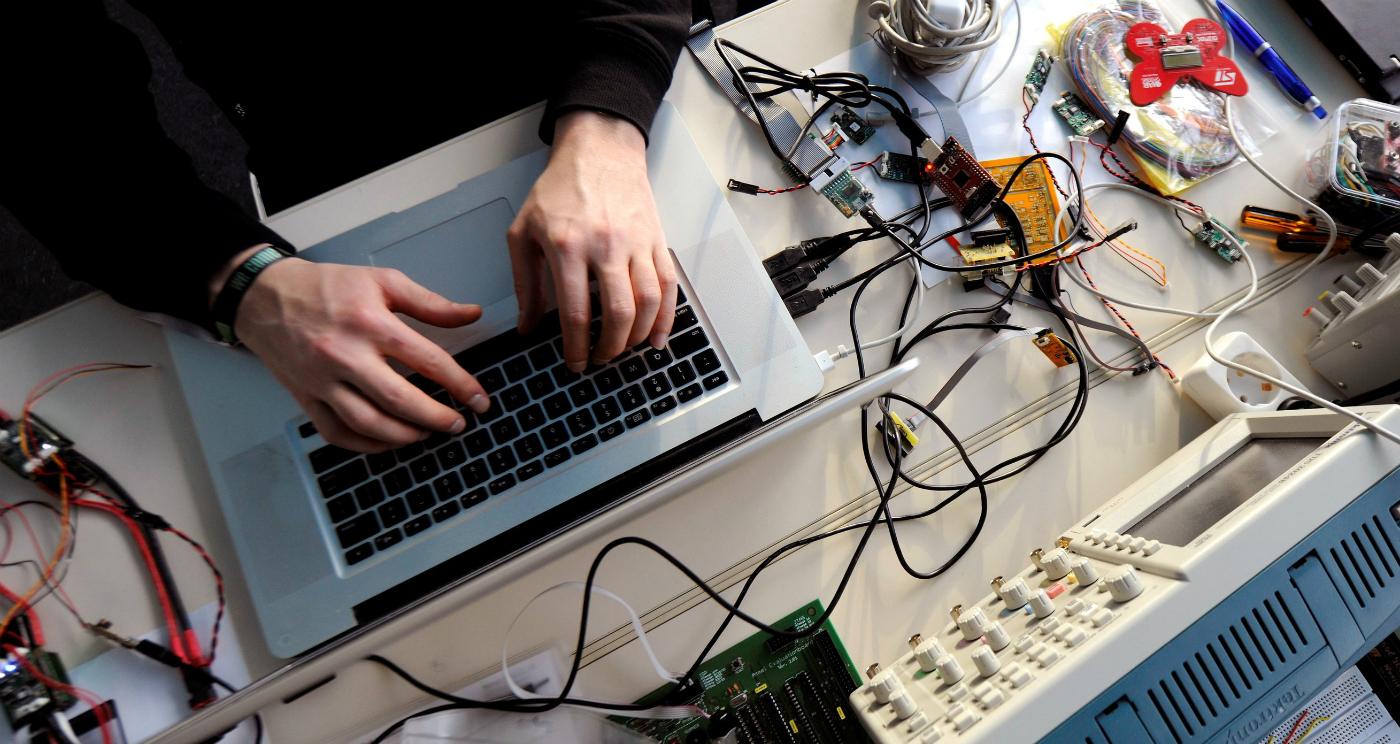Leaked EU cables: what they reveal
Security firm believes Chinese government behind hack of diplomatic messages discussing Trump, Russia and Iran

A free daily email with the biggest news stories of the day – and the best features from TheWeek.com
You are now subscribed
Your newsletter sign-up was successful
Hackers have been monitoring private European Union communications channels for at least three years, intercepting thousands of diplomatic cables, according to a private security firm that claims to have discovered the breach.
Calfornia-based company Area 1 has passed The New York Times more than 1,100 intercepted messages, which include frank private discussions of President Donald Trump, Russian aggression and the Iranian nuclear threat.
The hacked cables “consist of low-level classified documents that were labelled limited and restricted”, say the Times, which notes that the European Union’s top secret documents are transmitted and stored on a separate system.
The Week
Escape your echo chamber. Get the facts behind the news, plus analysis from multiple perspectives.

Sign up for The Week's Free Newsletters
From our morning news briefing to a weekly Good News Newsletter, get the best of The Week delivered directly to your inbox.
From our morning news briefing to a weekly Good News Newsletter, get the best of The Week delivered directly to your inbox.
Nonetheless, the trove “provides insight into Europe’s struggle to understand the political turmoil engulfing three continents”, the newspaper adds.
In one seemingly tongue-in-cheek memo, EU diplomats described a meeting between Trump and Russian President Vladimir Putin in Helsinki, Finland, as “successful (at least for Putin).”
In another message, Caroline Vicini, deputy head of the EU mission in Washington, shared guidelines for “messaging efforts” to counter the Trump administration’s “negative attitude”, advising that diplomats describe the US as “our most important partner”.
Other cables contain detailed accounts of private conversations with the leaders of China, Israel and Saudi Arabia.
A free daily email with the biggest news stories of the day – and the best features from TheWeek.com
At a meeting in July, China’s President Xi Jinping allegedly compared the Trump administration’s attitude to a “no-rules freestyle boxing match” and warned European officials that his country “would not submit to bullying” from the US, “even if a trade war hurt everybody”.
The intercepted missives also feature discussions about Russian aggression in Crimea, including fears that nuclear warheads may already have been deployed in the contested region.
“If confirmed, such a hack would represent a stunning breach of security in what appears to be an audacious act of espionage,” says CNN.
Area 1 says it has “no doubt” that that hack was directed by the Chinese government, and was probably carried out by the elite intelligence service of the Chinese People’s Liberation Army.
In a statement to CNN, China’s Ministry of Foreign Affairs dismissed the allegations, calling the Times report “suspicious, groundless” and “extremely irresponsible”.
“China stands firmly against criminal hacking activities, and will pursue criminals it according to laws,” a spokesperson said. “If there is any evidence, relative departments will investigate.”
Meanwhile, a former senior official at the US National Security Agency told the Times that the EU “had been warned, repeatedly, that its aging communications system was highly vulnerable to hacking by China, Russia, Iran and other states”.
In a statement on Tuesday night, the EU confirmed it was “aware of allegations regarding a potential leak of sensitive information and is actively investigating the issue”, but did not comment on the alleged contents of the leak.
-
 Is Andrew’s arrest the end for the monarchy?
Is Andrew’s arrest the end for the monarchy?Today's Big Question The King has distanced the Royal Family from his disgraced brother but a ‘fit of revolutionary disgust’ could still wipe them out
-
 Quiz of The Week: 14 – 20 February
Quiz of The Week: 14 – 20 FebruaryQuiz Have you been paying attention to The Week’s news?
-
 The Week Unwrapped: Do the Freemasons have too much sway in the police force?
The Week Unwrapped: Do the Freemasons have too much sway in the police force?Podcast Plus, what does the growing popularity of prediction markets mean for the future? And why are UK film and TV workers struggling?
-
 Epstein files topple law CEO, roil UK government
Epstein files topple law CEO, roil UK governmentSpeed Read Peter Mandelson, Britain’s former ambassador to the US, is caught up in the scandal
-
 Iran and US prepare to meet after skirmishes
Iran and US prepare to meet after skirmishesSpeed Read The incident comes amid heightened tensions in the Middle East
-
 Grok in the crosshairs as EU launches deepfake porn probe
Grok in the crosshairs as EU launches deepfake porn probeIN THE SPOTLIGHT The European Union has officially begun investigating Elon Musk’s proprietary AI, as regulators zero in on Grok’s porn problem and its impact continent-wide
-
 Israel retrieves final hostage’s body from Gaza
Israel retrieves final hostage’s body from GazaSpeed Read The 24-year-old police officer was killed during the initial Hamas attack
-
 China’s Xi targets top general in growing purge
China’s Xi targets top general in growing purgeSpeed Read Zhang Youxia is being investigated over ‘grave violations’ of the law
-
 Panama and Canada are negotiating over a crucial copper mine
Panama and Canada are negotiating over a crucial copper mineIn the Spotlight Panama is set to make a final decision on the mine this summer
-
 Europe moves troops to Greenland as Trump fixates
Europe moves troops to Greenland as Trump fixatesSpeed Read Foreign ministers of Greenland and Denmark met at the White House yesterday
-
 Why Greenland’s natural resources are nearly impossible to mine
Why Greenland’s natural resources are nearly impossible to mineThe Explainer The country’s natural landscape makes the task extremely difficult